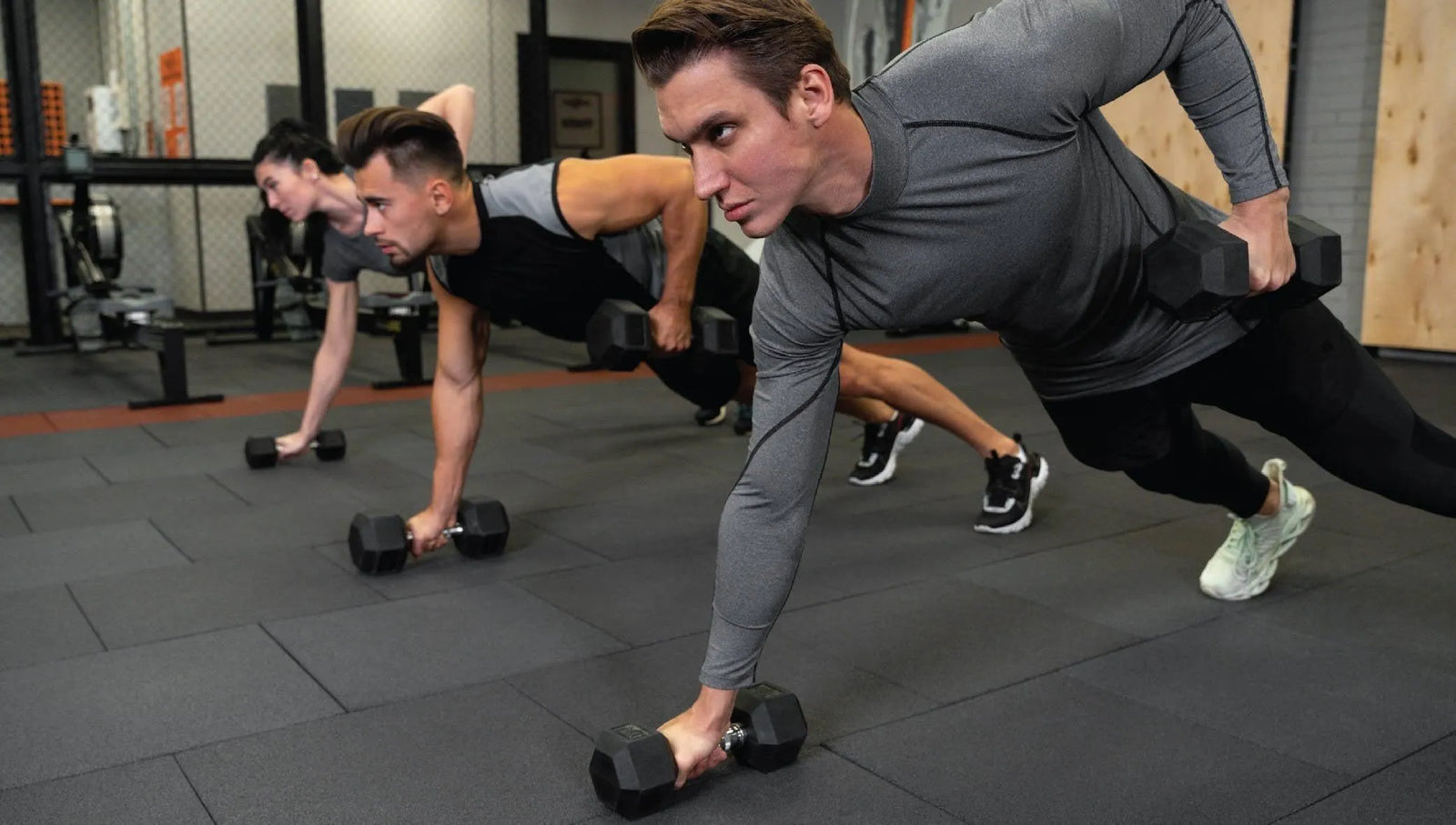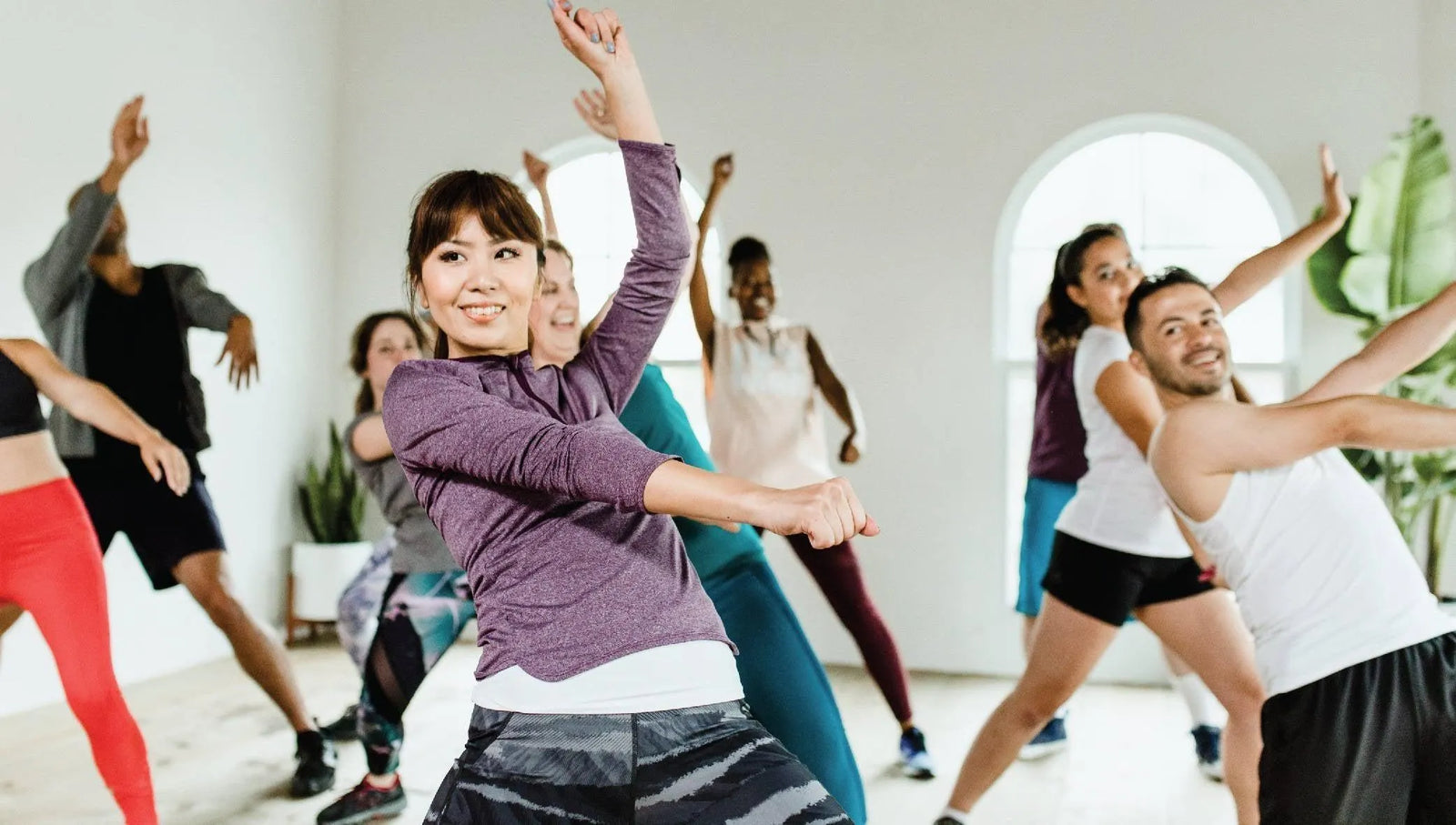Your Cart is Empty
The 7 Primal Functional Movements
September 18, 2023 4 min read

There’s nothing like going back to our roots and moving like our ancestors in a world where we spend most of our days sitting and slumped behind our desks and hopping into our cars to take us from home to work. In today’s article, we discuss the importance and benefits of incorporating primal functional movements into your fitness routine.
What are Primal movements?
Primal movements, often referred to in the context of exercise and fitness, are fundamental human movements that are based on natural, functional patterns of motion. These movements are inspired by the way our ancestors moved in their daily activities and are considered essential for building overall strength, mobility, and functional fitness.
Primal movements are often used in functional fitness training to improve physical performance and address imbalances in the body. While there are variations in the classification of primal movements, the following are considered the seven primal functional movements:
1. Squats
Squatting involves bending at the hips and knees while keeping your feet flat on the ground. It's a foundational movement for activities like sitting down, standing up, and lifting objects.
2. Hinge
Hinging movements involve bending at the hips while keeping your spine straight. This movement pattern is essential for activities such as picking up objects from the ground with proper form. Deadlifts and kettlebell swings are hinge exercises.
3. Lunge
Lunging involves taking a step forward, backward, or to the side while maintaining stability with the other leg. Lunges help improve lower body strength and balance.
4. Push
Pushing movements require extending the arms to push objects away from the body. These movements target the muscles in the chest, shoulders, and triceps. Push-ups and bench presses are common push exercises.
5. Pull
Pulling movements involve using the upper body to bring objects toward the body or pull the body upward. They work the muscles in the back, biceps, and shoulders. Pull-ups, rows, and lat pulldowns are examples of pull exercises.
6.Rotation
Rotational movements involve twisting or turning the torso. These movements enhance core strength, stability, and agility. Russian twists and cable wood chops are examples of rotational exercises.
7.Gait
Gait movements replicate walking and running patterns. These movements focus on leg strength, coordination, and endurance. Walking, jogging, and sprinting are part of gait movements.
Primal movements are designed to be functional and practical, helping individuals develop strength and mobility that can be applied to everyday activities. Many fitness programs incorporate these movements to create well-rounded and balanced workout routines. By including primal movements in your exercise regimen, you can enhance your overall physical fitness and reduce the risk of injury.
Benefits of Learning Primal Movements
These movements are designed to mimic natural, everyday activities and promote functional strength and mobility. These practices integrate the whole body and can be performed with little to no equipment, so they are not only convenient but also cost-effective for anyone who wants to add these to their fitness regimen.
However, here are some more of the key benefits of incorporating the seven primal functional movements into your exercise regimen:
Improved Functional Fitness
These movements are practical and closely related to daily activities like sitting, standing, bending, and lifting. As a result, they enhance your ability to perform these activities with ease and reduce the risk of injury during everyday tasks.
Enhanced Strength
Each of the seven movements targets specific muscle groups, helping you build strength throughout your body. For example, squats strengthen the lower body, while push and pull movements target the upper body.
Better Mobility and Flexibility
Primal movements promote a full range of motion in your joints, which can improve flexibility and mobility. This can be especially beneficial for maintaining joint health and preventing stiffness as you age.
Core Stability
Many of these movements engage the core muscles, leading to improved core strength and stability. A strong core is essential for maintaining good posture and preventing lower back pain.
Balance and Coordination
Lunges, twists, and gait movements require balance and coordination, helping to improve these aspects of physical fitness. This can be particularly useful for reducing the risk of falls, especially in older adults.
Increased Muscle Activation
These movements often engage multiple muscle groups simultaneously, leading to efficient and effective workouts. This can help you get more out of your exercise routine in less time.
Functional Independence
By training your body to perform these natural movements effectively, you can maintain independence and quality of life as you age. You'll be better equipped to handle the physical demands of daily life.
Injury Prevention
Practising these movements with proper form can help prevent injuries by strengthening the muscles and joints and improving overall body mechanics.
Weight Management
Functional movements can contribute to weight management and fat loss by burning calories and increasing lean muscle mass.
Mental Well-being
Regular exercise, including these movements, can have a positive impact on mental health by reducing stress, boosting mood, and increasing energy levels.
Versatile Workouts
Primal movements can be adapted to various fitness levels and goals, making them suitable for individuals of all ages and abilities.
It's important to note that proper form and technique are crucial when performing these movements to maximise their benefits and minimise the risk of injury. If you're new to these exercises, consider working with a fitness professional to ensure you're performing them correctly and safely. Integrating the seven primal functional movements into your fitness routine can lead to a well-rounded and functional level of fitness that supports your overall health and longevity.
Bottomline:
Incorporating primal essential movements into your fitness routine can unlock your true strength and mobility. These exercises offer a wide range of benefits, from increased functional strength and improved mobility to enhanced core stability and improved mental well-being.
Whether you're a beginner or an experienced fitness enthusiast, primal essential movements can be tailored to your fitness level, making them accessible to all. So, put on your primal mindset, embrace these natural movement patterns, and unleash your full potential.
Also in Training

Boosting Your Health: Understanding Aerobic and Anaerobic Metabolism
July 22, 2024 4 min read
Learn about the key differences between aerobic and anaerobic metabolism, and how to optimize your workouts for better health and fitness. Discover the benefits and performance-boosting potential of combining these two metabolic powerhouses.
Read More
Smash Through the Wall: How to Increase Your Lactate Threshold for Running Glory
July 08, 2024 4 min read
Learn science-backed strategies to boost your lactate threshold, enhance running performance, and achieve your fitness goals. Discover expert tips and techniques here.
Read More
The Ultimate Guide to Cross-Training
July 01, 2024 5 min read
Learn about cross-training, crafting a plan, tailoring for different fitness goals, and activities beyond the gym. Discover the ultimate fitness guide at VPA.
Read More Recent Articles
- Boosting Your Health: Understanding Aerobic and Anaerobic Metabolism
- Smash Through the Wall: How to Increase Your Lactate Threshold for Running Glory
- The Ultimate Guide to Cross-Training
- Embrace the Cold: How to Stay Active and Healthy Throughout Winter Down Under
- What is Hyrox?
- Mastering the Pull-Up
- Building a Champion: Why Cardio and Strength Training are Your Fitness Dream Team
- Beyond the Six-Pack: Building a Strong Core for Everyday Life
- Routine and Discipline – The Backbone of Fitness
- Calisthenics for Beginners
${{amount}}













